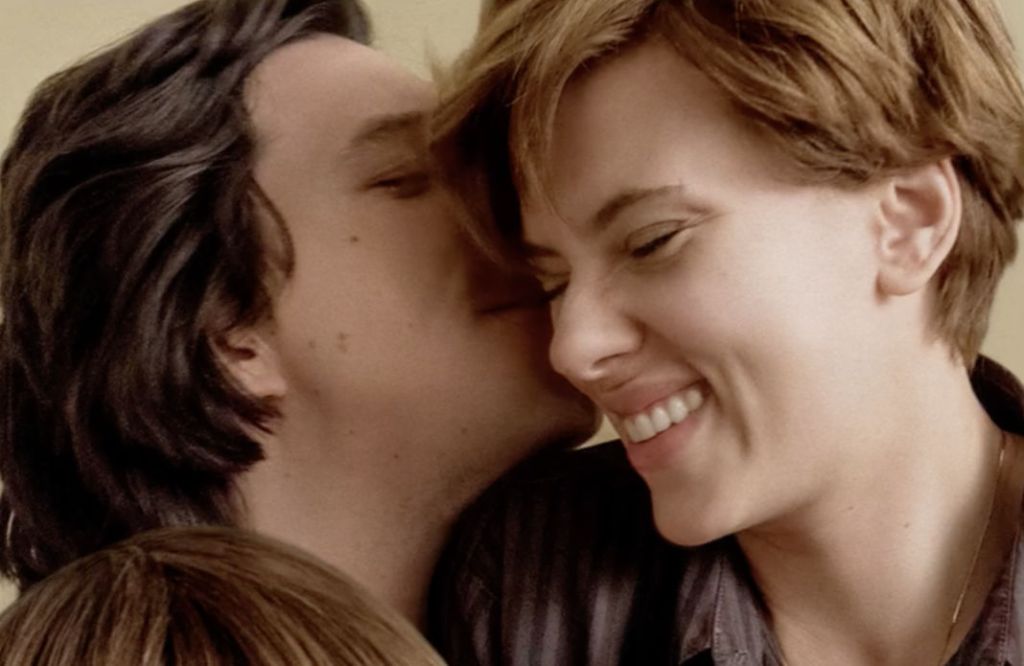By Chilimovie - 22 July 2021

No matter how much we don't want to admit this fact, any intimacy cannot escape the relationship of power in the final analysis.-----Marriage Story
In the relationship described in the film, Nicole is the weaker party, perhaps because she "fell in love with Charlie two minutes after seeing him"; perhaps because (as Charlie said during a quarrel) she wanted to get married, and Charlie didn't want to get married so much; maybe because she is a woman, and society always has much higher requirements on women (especially women in intimate relationships, that is, wives and mothers) than men—(as female lawyers say) fathers only It's commendable to be able to play with the child, and any small flaws of the mother are unforgivable; the husband will cook and iron the clothes worthy of the wife's writing in "I love you 100 points", and the wife does not close the cupboard door. Can be accused of being a slob.
Once there are strong and weak sides, there will be neglect and oppression. The wishes of the disadvantaged party are not taken seriously (the couple can go to Europe for Charlie's work for half a year, but cannot go to Los Angeles for Nicole's work for a year), the voice is not heard (Nicole really wants to be a director, but Charlie's answer is always "Maybe Next time"), has long been required to pay unconditionally and taken for granted (Charlie thought that Nicole was justified in acting for him, and even after Nicole received a TV show contract, he thought that the salary should of course be used to invest in his theater company). The desire of the strong side will immediately become a deal, and the desire of the weak side can only stay in the "discussion" stage, and the strong side is not even aware of this (Nicole said: You are too accustomed to selfishness, you have never realized that it is. selfish).
Regrettably, if the weaker parties in power relations want to fight for their rights, there may have been only one way: draw their swords and face each other. Nicole did this, and her female lawyer did it on her behalf. But what's even more regrettable is that we have always asked for intimacy to be tender and considerate for the other person. Therefore, at the moment of drawing the sword and facing each other, this relationship has inevitably ended.
When the battle for divorce started, Charlie's initial reaction was shock, confusion, and feeling that Nicole was unkind. Charlie's lawyer questioned Nicole's lawyer in court: How can you double standards like this?
As a result, the female lawyer replied: Why not?
I think the audience will think this woman is vicious and annoying. But the truth is: she is absolutely correct, and her method may be the only solution.
When the strong uses double standards to oppress the weak in the marriage relationship (for example, the strong party’s wish will immediately become a deal, and the weaker's wish can only stay in the "discussion" stage, which is a naked double standard), why not Ask yourself "how can you"?
The problem is that in an intimate relationship, the strong will never show mercy to solve the plight of the weak. Nicole only asks for a divorce, and only by hurting each other violently can he get what he wants. In the end, she realized what was not excessive: Charlie decided to move to Los Angeles for a year. But for this, what a huge price they paid: the marriage broke down, the two sides fought each other with bruises, and two sky-high lawyer bills. Perhaps we would think that all of this could have been avoided: if Charlie could pay attention to each other's wishes, the couple would not break up; if the two parties who decided to divorce could sit down and talk together, they would not escalate into an expensive and ugly lawyer war. But from the perspective of power relations, maybe these things are simply impossible. The weak can never get alms from the strong within the intimate relationship with mild resistance, and taking out a knife is the only option. The ugliness of divorce does not lie in the fact that two people who once loved each other are talking badly, but in that the power relationship is so disgusting after the skin of intimacy is removed.
The cruelty of intimacy is that we often throw the imperfections and inner black holes of life into a relationship that we are no longer satisfied with. Charlie said that Nicole "used him to escape from Los Angeles", saying that Nicole clearly chose this life, but blamed her dissatisfaction with her choice on marriage, saying, "You were obviously happy at the time, you just look back and decide now I thought I was unhappy at that time." Nicole said that because of her marriage, she gave up so much, gave up movies, gave up Los Angeles, and gave up her dream of directorship. Charlie also said that because of marriage, he gave up so much, gave up his youth, gave up freedom, and gave up a rich love life. I think what they said is completely correct and quite wrong. Intimacy always means giving up a part of yourself, which is inevitable. But "because of marriage, I can't do anything" rhetoric is unnecessary. There are more essential reasons for the imperfection of life, and we can only face it alone. Treating marriage as a shield, as a reason for not admitting one's failure, is often just a weak act of self-deception.
The tenderness of intimacy may be in Charlie's song: it helps us get rid of loneliness, it helps us find the feeling of being alive. When everything is over and there is no need to "decide that we were not happy at that time", we will confess from the heart that we were happy after all.
So, when Charlie read the late letter, when Nicole bent over to tie Charlie's shoes, we forgot the ugliness of the first two hours and forgave everything in tears and smiles. Because we confess from the bottom of our hearts: After all, they loved each other.
Love is cruel and gentle, but it is worth it after all.


